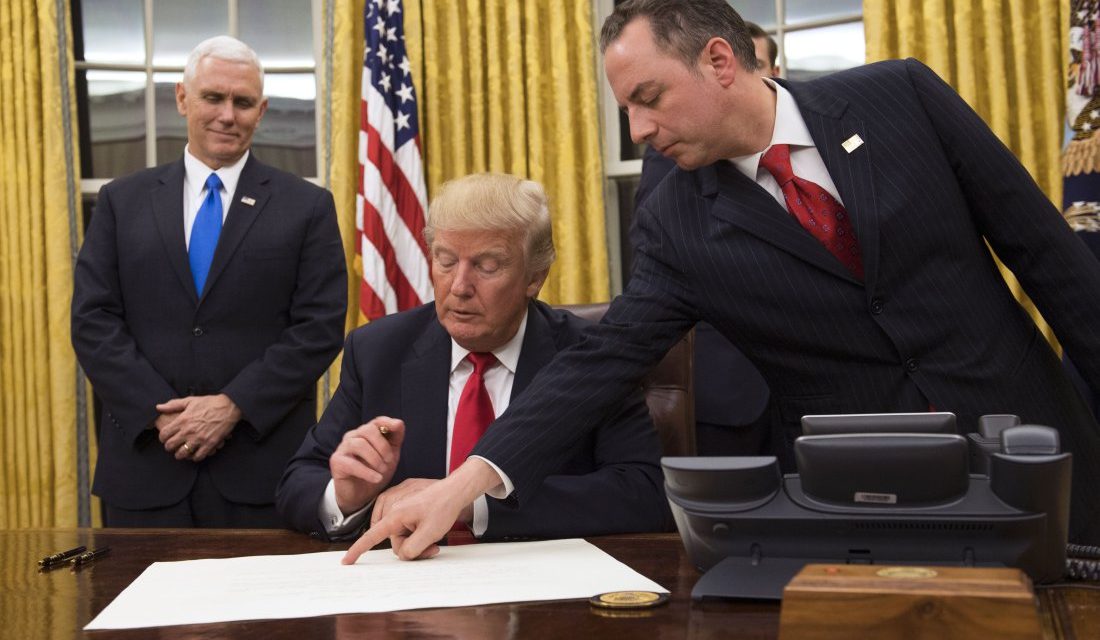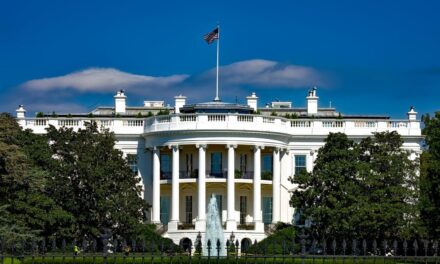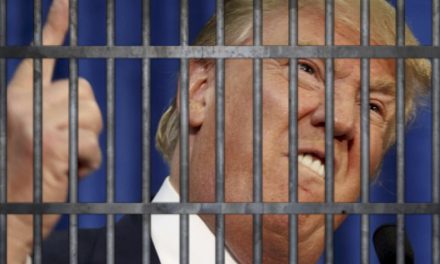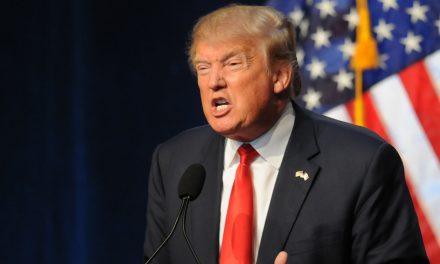Contrary to his claim that “nobody disobeys my orders,” it appears that Trump’s aides and cabinet members are constantly disobeying his orders. The most famous example, of course, is former White Counsel Don McGahn’s refusal to fire Robert Mueller. That decision may have prevented Trump from being removed from office. It seems that Trump has been saved quite a few times by the reluctance of his staffers and associates to act promptly on his orders. Then-chief of staff Reince Priebus did not carry out an order to fire then-attorney general Jeff Sessions. Corey Lewandowski delayed and ultimately blew off an instruction to fire Jeff Sessions if he wouldn’t take instruction on how to obstruct the Mueller investigation. Lewandowski wasn’t even a government employee at the time.
Trump’s impulsiveness has sometimes caused lasting problems. In December 2018, after Trump announced an immediate military withdrawal from Syria, Secretary of Defense James Mattis announced he was resigning in protest. Trump still hasn’t filled his position and the military still hasn’t withdrawn from Syria. That wasn’t the first time that the Pentagon defied the president. After Trump announced, in July 2017, that transgender people could no longer serve in the military, the Pentagon acted surprised and eventually rejected such a sweeping policy change. In March 2019 they limited the ban to people who have gender dysphoria or have undergone a sex change.
Maybe the most ridiculous example of a negative consequence to Trump’s tendency to make rash pronouncements was the ill-fated Presidential Advisory Commission on Election Integrity. It never would have been created if not for a couple of tweets the president posted five days after his inauguration.
On November 8, 2016 Donald Trump won the 2016 United States presidential election, but lost the popular vote to opponent Hillary Clinton…On November 28, 2016 Trump stated in a tweet, “In addition to winning the Electoral College in a landslide, I won the popular vote if you deduct the millions of people who voted illegally.” Trump has repeatedly stated and implied that three to five million people voted illegally in the 2016 election.
On January 25, 2017 President Trump tweeted a statement,”I will be asking for a major investigation into VOTER FRAUD, including those registered to vote in two states, those who are illegal and….even, those registered to vote who are dead (and many for a long time). Depending on results, we will strengthen up voting procedures!”
The commission was disbanded a year later without completing its work or doing any meaningful work at all. They had been asked to investigate something that only existed in Trump’s imagination and they could only sustain the farce for so long.
A current complication involves the government’s effort to respond to Trump’s announcement that all foreign aid will be cut off to Guatemala, El Salvador and Honduras.
A month and a half has passed since the president’s Central America announcement, and according to lawmakers and aides, the administration is not advancing the issue. Senator Patrick Leahy, who serves as the ranking member of the subcommittee that funds foreign aid, told me that this was the inevitable result of an “impulsive and illogical” decision by the president. “It caught the State Department and USAID by surprise, and they have been scrambling to figure out how to limit the damage it would cause,” Leahy said.
“We have heard nothing so far,” a senior Democratic official on the Senate Appropriations Committee, which must sign off on any funds that State wants to reallocate, told me. “What money are we talking about? For what purposes? What’s the timeline for this? It’s been weeks now, and we’ve asked multiple times, and we know nothing.” (The State Department did not respond to my request for comment.)
The president doesn’t have the authority to unilaterally cut off foreign aid, at least not without lifting a finger to assert his powers as commander in chief. The funding is set by Congress and without some kind of executive action like an emergency declaration, the funding to Central America will continue. It’s still unclear how this dispute will play out.
In April, CNN compiled a list of 13 times that people had disregarded Trump’s instructions. Several involved things that were clearly criminal and others were impeachable offenses or at least very high on the ethical shadiness scale. James Comey did not let Michael Flynn off the hook and Sessions wouldn’t un-recuse himself from the Mueller investigation. Don McGahn, K.T. McFarland and Rod Rosenstein all refused to tell lies that to the public or to the special counsel’s office.
Imagine what would have happened if Trump got his way on this one:
In the early months of his presidency, at arguably the peak of his frustration with U.S. Attorney General Jeff Sessions, President Donald Trump wanted a question posed to the third-in-command at the Justice Department: Rachel Brand.
It was the summer of 2017, and Trump was feuding with Sessions, who had infuriated the president months earlier with his decision to recuse himself from the Russia investigation, setting in motion Deputy Attorney General Rod Rosenstein’s appointment of Robert Mueller III as special counsel.
Questions swirled over whether Trump would fire Sessions and Rosenstein. And there was speculation that Rosenstein’s central role in firing FBI Director James Comey would require him, as a witness, to step away from overseeing the Russia investigation.
In July 2017, Trump turned to a top aide to pitch a question for Brand, a longtime Washington lawyer and former Wilmer Cutler Pickering Hale and Dorr partner who was then serving as the No. 3 official at the Justice Department. Trump reportedly asked staff secretary Rob Porter whether Brand was “on the team” and if she were interested in overseeing the Russia probe.
Special Counsel Robert Mueller III, a former Wilmer partner who left the firm to lead the Russia investigation, learned about Trump’s remarks from Porter, who kept contemporaneous notes.
“Keep in touch with your friend,” Trump told Porter. Trump would follow up, asking later if Porter had reached out to Brand. He never did, according to the report, “because he was uncomfortable with the task.”
It’s interesting that Trump often gets into trouble when his orders are carried out, but he has so far avoided any really serious consequences for issuing dubious orders that were not carried out. He’s clearly committed numbers acts of obstruction of justice, but some of the examples are not as compelling simply because someone felt too uncomfortable to obey or thought it prudent to delay and see if he would calm down or forget.
There are some areas where it would have been better if Trump’s priorities were ignored. I think his decision to start a trade war with China is a good example. Hopefully, starting a shooting war with Iran won’t be another.







